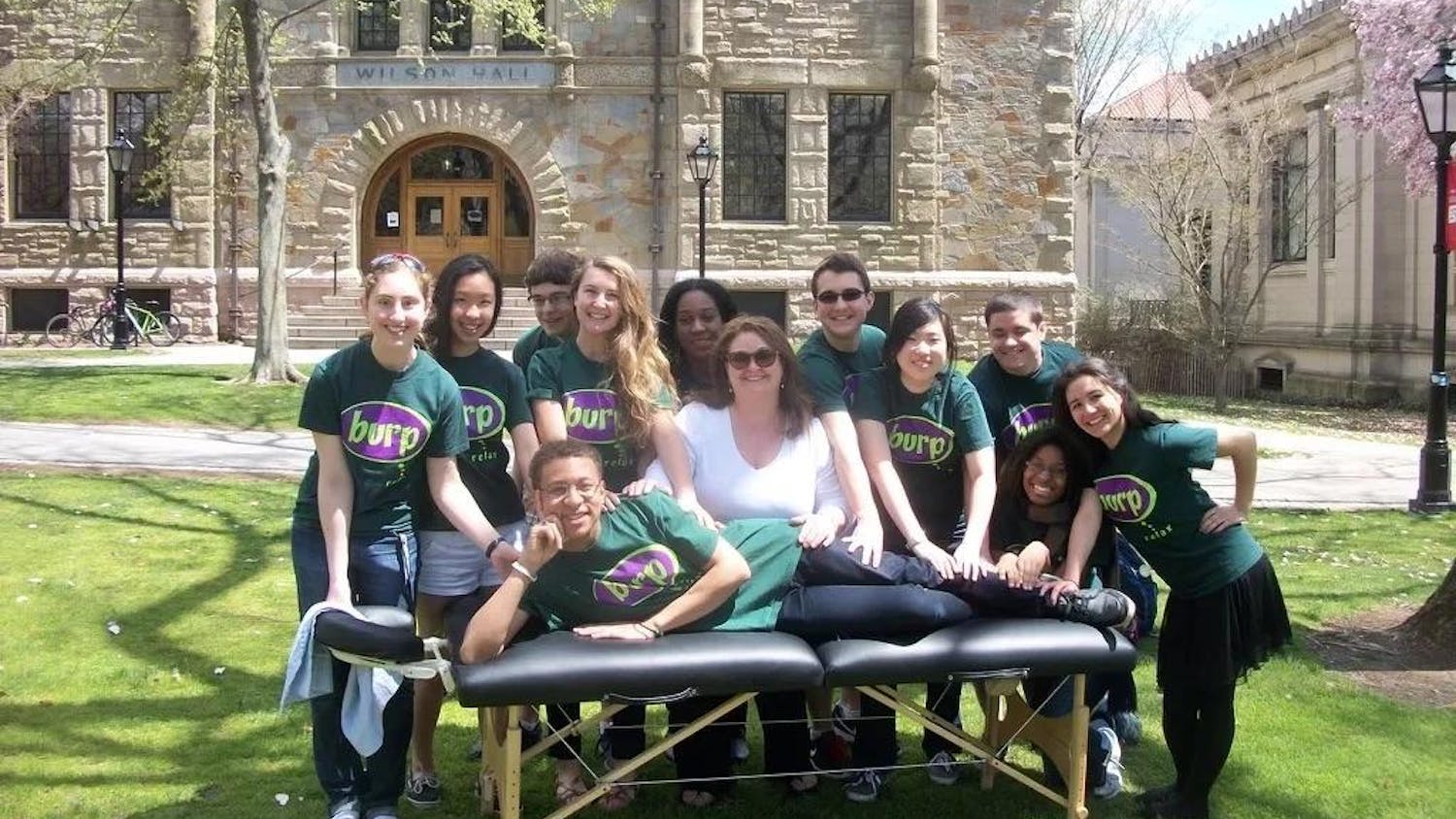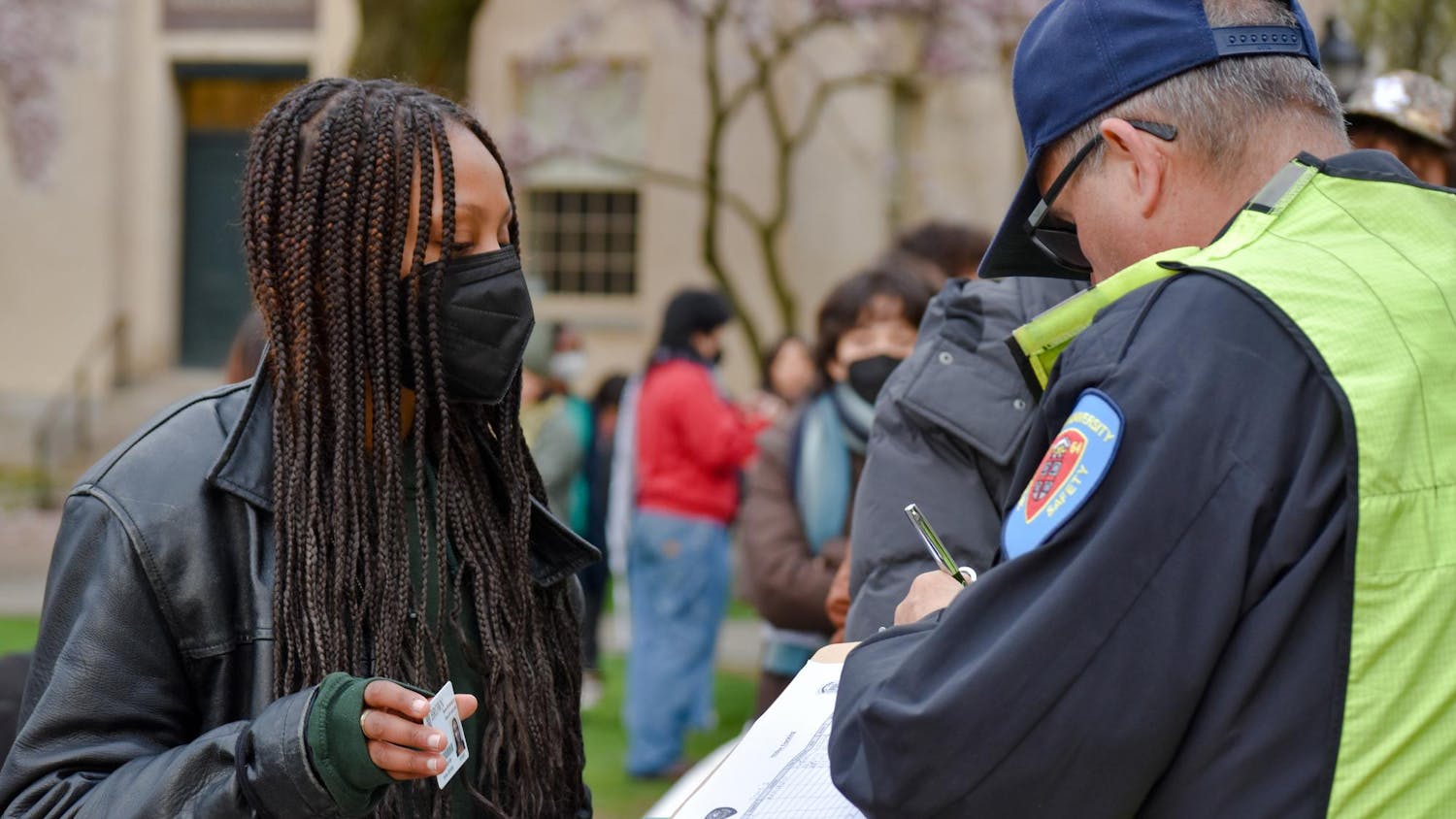"The non-violence of King and Gandhi had a strong element of courtesy and forgiveness," Rajmohan Gandhi, grandson of Mahatma Gandhi, told a packed Salomon 101 Sunday.
The former member of India's Upper House of Parliament, current president of Initiatives of Change International and renowned author and biographer examined his grandfather's view on non-violence and the influence those views had on Martin Luther King, Jr.'s approach to civil disobedience.
"With Gandhi as with King, non-violence was a fight for equality — it was the opposite of meek surrender," Gandhi said. "Violence was not merely cruel, it was folly as well."
The concept of non-violence dates back to Henry David Thoreau and Abraham Lincoln, Gandhi said, both of whom significantly shaped his grandfather's ideas about civil disobedience and passive resistance. Though his grandfather initially was a "proponent of violence," Gandhi said the famous Indian leader's experience as a student in England, coupled with a series of events in which he experienced physical violence when he moved to South Africa in his early twenties, made him realize the power of non-violent forms of protest.
"The temperature of violence left Gandhi's system," he said. "A fight to uphold the equal wealth of all human souls, whether the body encasing the soul was white-, black- or yellow-skinned would be a spiritual as well as a political exercise."
Gandhi came to Brown as part of the University's Year of India celebration, which includes a series of lectures, conferences and other events to promote a better understanding of Indian culture.
The University of Illinois at Urbana-Champaign professor and author of the biography "Mohandas: A True Story of a Man, His People and an Empire," also headed the Indian delegation to the United Nations Human Rights Commission held in Geneva in 1990.
Though King was influenced by Gandhi's message of love and truth, Gandhi's grandson said King encountered different circumstances in promoting his ideas.
"There was an obvious but critical difference between Gandhi's India and King's America," he said. "Indians were a great majority fighting a small if powerful and well-armed minority of British rulers. American blacks were a defenseless minority with living memories of slavery in a predominantly white society."
Despite this difference, Gandhi said the two leaders shared the belief that non-violence had an element of "toughness" that detracted from any connotations of passivity.
Both leaders shied away from softer characterizations of their views, emphasizing the strength embodied in civil disobedience rather than the more negative aspect of non-violent submission, Gandhi said.
"There had to be a better way of fighting — a way of non-violence," he said. "Gandhi also revealed a wish to claim the moral high-ground."
Though terrorist attacks by extremist groups have riddled the South Asian region that includes India, Pakistan and Afghanistan, Gandhi said his grandfather's legacy continues to have a worldwide impact.
"Not all the sad experience of conflict in all the countries, not all the efforts that we make to make ourselves high and others low, can destroy either the necessity or the beauty of Gandhi's 1908 vision," he said.
But he urged the audience to consider the plight of many members of South Asian minority groups, especially in light of the Fort Hood shooting that occurred in Texas earlier this month.
"Every single day, many more Pakistanis have passed, died from extremist attacks, and they too have loved ones," he said. "But their death is unrecognized."
In a question-and-answer session following the lecture, Gandhi addressed the treatment of prisoners at Guantanamo Bay and the effectiveness of non-violent protests against oppressive regimes.
One questioner asked how Guantanamo Bay detainees ought to be treated, to which Gandhi replied, "with tremendous seriousness."
"I think he kind of avoided some of the questions," said Julieta Cardenas '13. "I wanted him to give his own opinions."
Despite his hope that cultural divides can be bridged, Gandhi stressed the importance of maintaining his grandfather's — and that of his predecessors — messages of peace.
"For their sakes," Gandhi said, "let them continue to stir all honest persons everywhere."
ADVERTISEMENT




